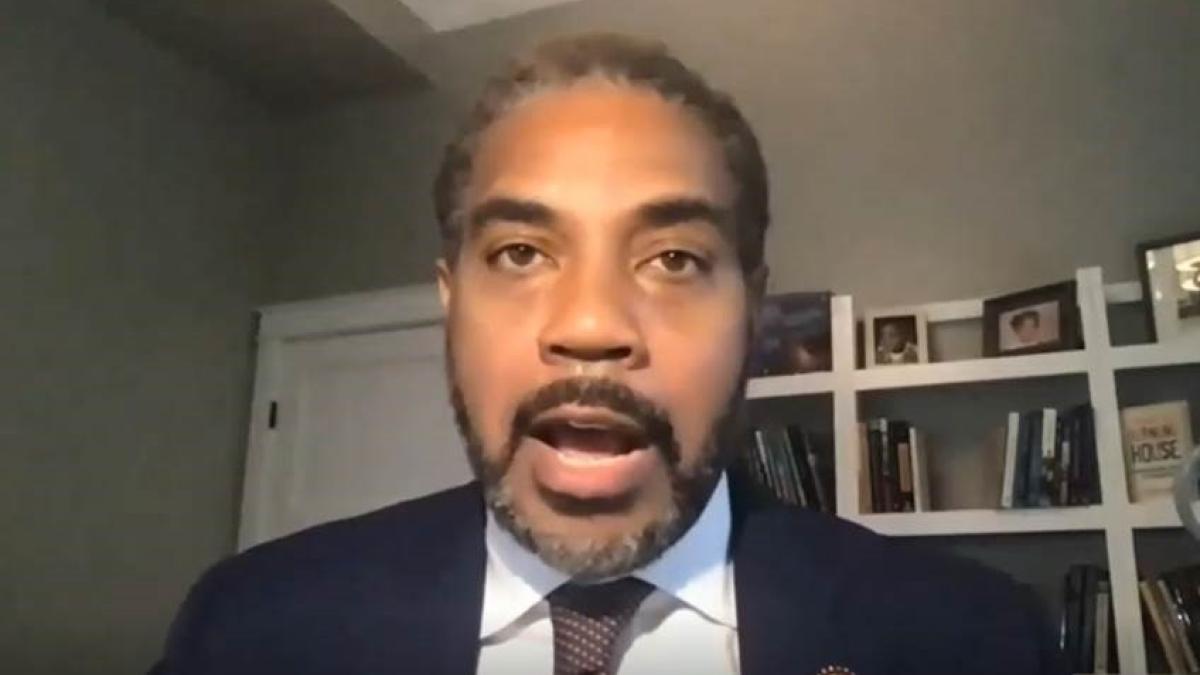Congressman Steven Horsford Calls for Workers Rights in Post-COVID Trade Policies

Washington, D.C. -- Today, Congressman Steven Horsford (NV-04), joined his colleagues on the House Ways and Means Committee for a hearing on the 2020 trade policy agenda. United States Trade Representative, Robert Lighthizer, testified before the committee.
"I supported the United States-Mexico-Canada agreement (USMCA) because I believed the aims were right, and that we were successful in adding a number of major improvements, but I have also repeatedly expressed the challenges regarding workforce preparedness, skills development and training. We can't just talk about trade or tariffs or taxes without also talking about training of the American workforce," Congressman Horsford said, before questioning Ambassador Lighthizer on planned workforce development initiatives. "The labor provisions I fought for are a crucial part of the USMCA agreement. But all of those provisions depend on the ability of workers to learn and know their new rights under law, and to be able to actually exercise their rights without fear of intimidation, threats, retaliation or violence."
Currently, trade with Canada and Mexico supports nearly 17,000 jobs in Nevada's Fourth Congressional District. Additionally, $357 million in goods and services are exported from Congressman Horsford's district to Canada and Mexico annually.
After critical improvements to the agreement were secured by House Democrats, the House passed the USMCA Implementation Act in December of last year by an overwhelmingly bipartisan vote of 385 to 41. In January, the Senate passed the implementing legislation as well, and the President signed it into law.
Video of the entire hearing is available HERE. The Congressman speaks at 3 hours and 48 minutes.
The Congressman's prepared remarks and line of questioning are available below:
I am one of the members who supported the USMCA agreement because I believe the aims were right, and that there were a number of major improvements, but I have expressed the challenges regarding workforce preparedness, skills development and training. We can't just talk about trade or tariffs or taxes without also talking about training of the American workforce. Particularly post-COVID, with record unemployment in my home state of Nevada over 30 percent unemployment.
As you stated, the labor provisions are a "crucial part" of the USMCA agreement. All of those provisions depend on the ability of workers to learn and know their new rights under law, and to be able to actually exercise their rights without fear of intimidation, threats, retaliation or violence. This requires a culture change in workplaces across Mexico.
Congress dedicated unprecedented resources and funding in the USMCA to ensure workers get the hands-on information, education and training they will need to be able to overcome those obstacles to organize and create just workplaces. Funding new databases and more government bureaucrats is not going to cut it. Independent worker organizing is resource-intensive and requires commitment from the top-down to the bottom of the USMCA structure.
The US Department of Labor plays an important role in allocating these resources, but what will you on the Interagency Labor Committee do to ensure that those precious taxpayer dollars are effectively used to educate and empower workers on the ground in Mexico?
And separately, what can we continue to do , working through the Chairman and other members of this committee, to make the training of the American workforce a bigger priority?
The TAA program is abysmal, it doesn't work. We have record unemployment, and I don't care how great the administration touts the economy is. It was not great for a lot of marginalized communities, particularly in the African American and Latino communities. So I would like to know, specifically, what you are doing on the Interagency Labor Committee and what we can do to improve workforce training here in America?"
Video of the Congressman's testimony can bewatched and downloaded here.
